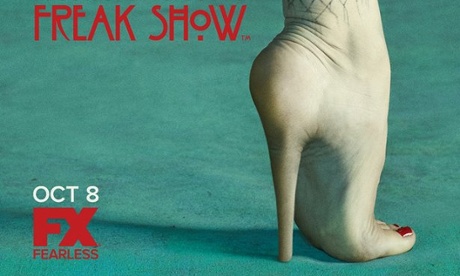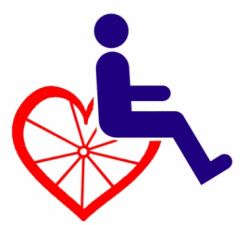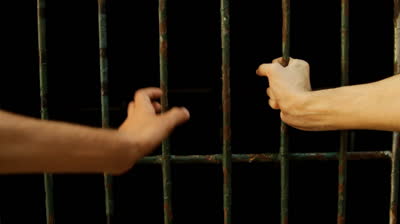When I met Jenny, one of the owners of this site, through the firm where I work and she asked me if I wanted to contribute to this blog, it put me in a bit of a quandary. Of course I was keen and flattered to be asked but where to start? What angle should I come at the topic of disability from? As a writer that has always been a sticky point for me, finding the first sticking point to launch myself into something. So after much pondering I decided what better place to start than writing itself, why I do it and what I do it about. And like all good stories mine starts a long time ago.
Once upon a time, there was a little girl named Holly who, because of some complications at her birth, was born with Cerebral Palsy. She was a very bright, if somewhat stubborn and disobedient, child who wanted to do everything she saw other children do. Her parents loved her very much and having been told by doctors that she would be ‘little more than a vegetable’ decided to stimulate her eager young mind in every way they could think of as they were sure that their daughter would prove the so-called ‘experts’ wrong, (they were quite stubborn and disobedient themselves!) So with the help of Holly’s devoted grandparents they set about filling her life with as much information, fun and education as they could. They took her on countless day trips everywhere from stately homes to the seaside, enrolled her in mainstream Brownies and played endless educational games with her. But although Holly’s childhood was as stimulating and as fun as any child could wish it, she was still very aware how different she was to other children and desperately frustrated. Monstrous tantrums would erupt when her damaged body wouldn’t do what she wanted it to or drawings would be ruined by her clumsy hands. What she desired most in the world was to do something that wasn’t affected by her disability. And so, in desperation her parents turned to books. They read to her, as much and as often as they could. In the car, in the bath, waiting for doctors’ appointments, as they attempted (mostly unsuccessfully) to feed her breakfast and when they tried (VERY unsuccessfully) to get her to sleep at night. They read everything and anything that was suitable from Roald Dahl and Enid Blyton to the Brothers Grimm and Childrens’ Encyclopaedias. And she adored it.
Thus begun a romance and love affair that has lasted my entire life. Words and stories became my favourite toys and dearest friends. They didn’t break when I played with them or run away or point like other children. Soon I grew bored with just hearing the stories my parents and grandparents told me and started making up my own. I have wanted to be a writer for as long as I can remember (apart from one day when I was about six when I put my Dad’s slippers on my hands and decided I was going to be a dog!) By the age of 12 I had written my first book ‘Animal High’ about a school for disabled and non-disabled animals which was published for charity, the proceeds going to the special school I attended. I took a short break in my teenage years to sit my GCSEs and A levels before leaving education at 18 to start my first novel. I decided to write about disability, (they do say write what you know). I sat down at my computer, opened up Word and…Nothing! Well not nothing, a few pages of various stories about special schools and residential homes but nothing that made want me to keep writing.
Now can I tell you a secret? Promise you won’t judge? I find writing about disability boring. Not all the time of course, I wouldn’t be on this site if I did but a full length novel? It hit me why I had such bad writer’s block. I didn’t want to be a writer who wrote stories about disability, after all, I didn’t read books about disability. I wanted to be a writer who wrote gripping, thrilling fantasy adventures that just happened to have characters with disabilities right at the centre. Now you may not think that there’s much connection between disability and fantasy literature, after all there aren’t any disabled students at Hogwarts (I have a MAJOR issue with that by the way. Every creed and race shown learning magic but not one wheelchair, what gives?) But if you’re a massive fantasy and mythology nerd like me, you’d be surprised what crops up.
Hephaestus, the Greek god of the forge was depicted as having wasted legs and throughout history there has been a long tradition of people with disabilities such as blindness and physical deformities being seen as possessing or being victims of magical powers. The saying ‘I have a hunch’ originally comes from the belief that those with spinal deformities had psychic gifts. The term ‘changling’, a baby who was stolen by the fairy folk and replaced for one of their own, is believed to come from people trying to find explanations for numerous impairments from epilepsy to autism. Of course, such folk tales were usually far from flattening and such legends were quite often used to persecute and portray disabled people as ‘evil’ or ‘unnatural’, but the very fact they exist fascinates me.
My first fantasy novel ‘The Jersey Guardian’ was published in 2005 and over the following years I completed the trilogy with ‘A Warlock In Jersey’ and ‘The Ghosts Of Helier.’ The stories focus around a fourteen-year-old from South London named Jessica Kent who discovers that her family are fated to be the guardians of Jersey and protect the isle from witchcraft and evil. If you read my books (please read my books, there’s a link to buy them at the bottom of the page), you might be surprised to find that there are no characters who have clearly recognisable disabilities but that doesn’t mean the themes and problems that have affected me through my life in regards to my disability aren’t featured at the core of the stories. While it’s true that the main threat faced by my heroes comes from the supernatural, they also have to tackle what it means when you or someone you love has a physical impairment and learning difficulty. It’s one thing to seek out and destroy ancient magic but how do you face the challenges of knowing you’re not as ‘normal’ as the rest of society and face the harsh judgements of others, even those within your own family?
In traditional fantasy literature where the hero has to summon inter strength to rise to vanquish every obstacle, it’s hard to raise the topic of disability when most impairments have to be endured rather than cured. I don’t claim to have totally succeeded in creating disabled heroes and role-models that were lacking when I was a child. I’m not arrogant enough about my talent to make that statement. Let’s face it, who, disabled or not, wouldn’t want a magic wand or potion that would make them happy, healthy and rich. That’s why fantasy exists in the first place, to create in the mind what does not exist in the real world. All I’ve tried to do is create a cast of characters who are interesting, brave, funny, loving, selfish, cunning, foolish, bigoted, forgiving, and enjoyable enough for the reader to stay with for 300 or so pages. It just so happens that in my stories one or two of them might not be considered as ‘able-bodied’. Holly Williams is an author, poet, artist, performer, graphic designer and disability campaigner.
Her books are available through this link.




